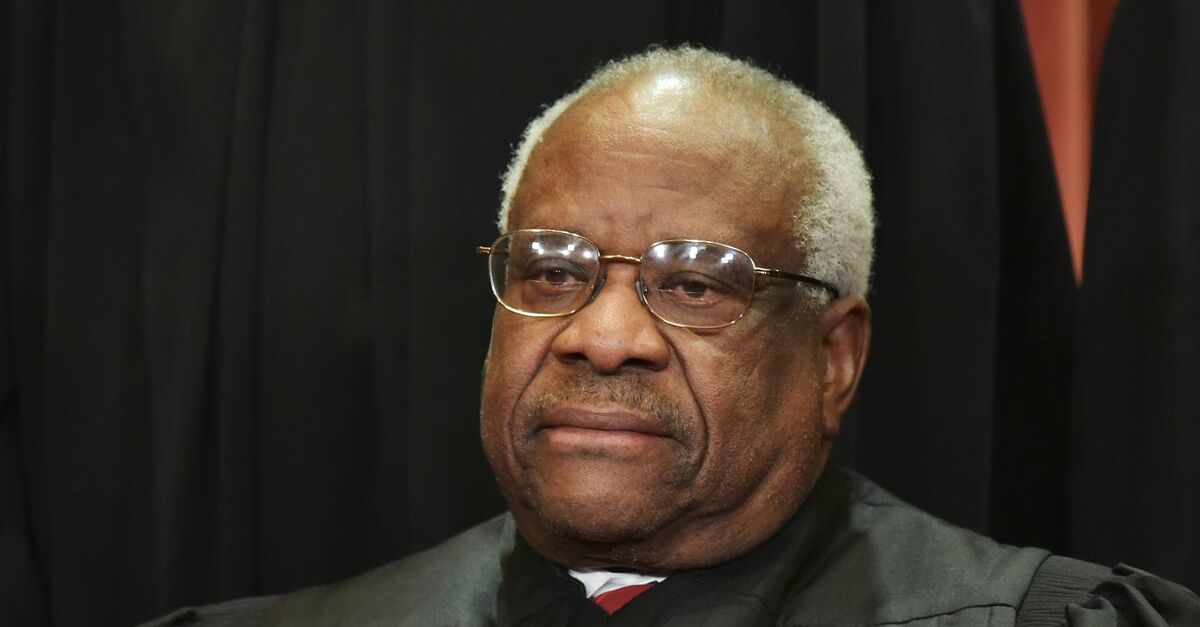
Kim Davis, the Kentucky clerk who famously refused to issue marriage licenses for same-sex couples, just lost her latest try to get a case in front of the Supreme Court to overturn marriage equality. But although the high court denied certiorari in Davis’s case, conservative Justice Clarence Thomas (joined by Justice Samuel Alito) went off on something of a tirade against the Supreme Court’s majority in Obergefell v. Hodges.
The 2015 Obergefell case was a landmark decision in which the Supreme Court ruled that the fundamental right to marry is guaranteed to same-sex couples by the United States Constitution. The 5-4 decision was penned by now-retired Justice Anthony Kennedy.
Although most denials of certiorari are handed down without explanation or comment, Justice Thomas wrote a four-page statement on the case. The statement was a scathing criticism of the Court for wrongly reading the right to same-sex marriage into the Constitution, for prioritizing LGBT rights over religious freedom, and for inappropriately inserting the judiciary into a matter of state law.
The case of Kim Davis, as recounted by Thomas, bears out precisely the problem with the Court’s decision in Obergefell. Davis was a county clerk in the Commonwealth of Kentucky, and was responsible for authorizing marriage licenses. She’s also “a devout Christian.” On the basis of “Davis’ sincerely held religious beliefs— that marriage exists between one man and one woman—”, she refused to issue a marriage license to same-sex couples. Davis also “began lobbying for amendments to Kentucky law that would protect the free exercise rights of those who had religious objections to same-sex marriage.” The Supreme Court, according to Thomas, unwisely “cut short” Davis’s efforts with its decision in Obergefell.
“Davis may have been one of the first victims of this Court’s cavalier treatment of religion in its Obergefell decision,” cautioned Thomas, “but she will not be the last.”
Thomas slammed the Court’s intrusion into religious freedom by lamenting SCOTUS’s unfair vilification of those that oppose same-sex marriage as bigots. He also said the high court intruded into a matter more appropriately addressed by state legislation:
It would be one thing if recognition for same-sex marriage had been debated and adopted through the democratic process, with the people deciding not to provide statutory protections for religious liberty under state law. But it is quite another when the Court forces that choice upon society through its creation of atextual constitutional rights and its ungenerous interpretation of the Free Exercise Clause, leaving those with religious objections in the lurch.
The Court’s decision in Obergefell, continued Thomas, allows courts and governments to “brand” as a bigot anyone who disbelieves in same-sex marriage. Since that decision was handed down, wrote Thomas, “people of good will” have been labeled “bigots,” “merely for refusing to alter their religious beliefs in the wake of prevailing orthodoxy.”
Thomas words to the Court about its decision in Obergefell were harsh, saying that by delivering that decision “the Court has created a problem that only it can fix.”
Thomas’ statement was–for now–nothing more than inconsequential dicta, however. Thomas concurred in the denial of certiorari in Kim Davis’s case, saying that her petition “implicates important questions” about the scope of Obergefell, but fails to “cleanly present them.” Justice Thomas is saying that he is interested in taking up a case on this issue, but that Davis’s legal argument was too weak to grant certiorari.
[image via Mandel Ngan/AFP via Getty Images]